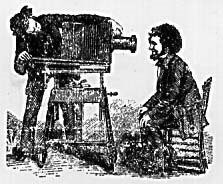Now that you're writing an essay about your graphic novel and its representational techniques, you may be curious to find out more about the real-world events depicted in it. Please remember that this kind of research is NOT required for the essay, since the essay's focus is on the image-text relationships in your panels. But if you feel that a brief discussion of this event could help your argument or just your understanding of the graphic novel, then go ahead and investigate.
Where can you go for this kind of information? In an email posing this question, Elena mentioned good ole Wikipedia, a clear choice given our involvement with that source so far. But our recent investigations into the generation of Wikipedia articles might be relevant here... for example, in the graphic "novel" Elena is working on, Palestine, the real-world event in question is the First Intifada. Here is Wikipedia's entry for that topic:
http://en.wikipedia.org/wiki/First_Intifada
Note the warning label at the top that says, "The neutrality of this article is disputed." The discussion and history tabs indicate that the article is edited quite often. Well, given the nature of the conflict and its ongoing presence as a political issue in the Middle East, that's really not surprising! (By the way, you may have noticed yesterday on the HUB lawn the Jewish and Palestinian student booths on either side of the central path... even at this basic geographic level, there is division.)
You can also look into more traditional encyclopedias, written and edited by experts, like the Encyclopedia Britannica--which you can access through the library portal:
http://www.lib.washington.edu/research/
But this approach may not be totally satisfactory, either. For instance, when I searched for "intifada" in Encyclopedia Britannica, the closest match was a very long article on the Middle East. The intifada is mentioned, but as an event it's woven into a much bigger topic, so it is hard to figure out precisely when it began, how it began, what constituted it, how it ended, and so on. Perhaps that's a better way to represent the intifada--as one piece in a puzzle--but it sure does make it hard to grasp what it IS. (I also noticed that Encyclopedia Britannica has a new feature: you can send suggestions to its editors. Hmmm, following the example of Wikipedia, perhaps?)
My goal here is to remind you of something we have encountered before in our readings: hard facts can be elusive and transitory! Paul Auster makes this point in City of Glass, of course, but we've also seen it in theory--for example, in Foucault's analysis of power, in Said's description of Orientalism--and in our own discussions about mass media and popular culture. In short, "knowledge" is always under construction, always conditional, always "ideologically situated."
Does this mean that the representations of real-world events in our graphic novels are as reliable and secure as the representations in, say, the Encyclopedia Britannica? Probably not. But it does indicate that both are representations.
announcements
This blog was created by and for students in an Introduction to Cultural Studies class at the University of Washington. Through an investigation of urban experience and representation--in theory, in graphic novels and in our own "readings" of Seattle's University District--we considered the formation and history of cultural studies as an (anti)discipline, with a special emphasis on the questions, "What does cultural studies do, and how do you do cultural studies?"
If you'd like to know more about the class, the blog or our U-District artifact project, please contact Gabrielle Dean: gnodean@u.washington.edu.
If you'd like to know more about the class, the blog or our U-District artifact project, please contact Gabrielle Dean: gnodean@u.washington.edu.
Thursday, May 15, 2008
Subscribe to:
Post Comments (Atom)
blog archive
-
▼
2008
(92)
-
▼
May
(26)
- Seattle U District: City Artifacts Map
- City Artifacts: What and Where?
- Researching History and its Representations...
- Palestine
- Persepolis 1 & 2
- Shutterbug Follies
- A Scanner Darkly
- Maus I & II
- A Scanner Darkly
- Maus I & II
- Shutterbug Follies
- Persepolis 1 and 2
- Postcards: True Stories that Never Happened
- Maus I & II
- Postcards: True Stories that Never Happened
- Persepolis 1 & 2
- Mail Order Bride
- Mail Order Bride: Mark Kalesniko
- Persepolis 1 & 2
- Shutterbug Follies
- Maus I and II
- Palestine
- Postcards: True Stories That Never Happened
- PALESTINE
- Postcards: True Stores That Never Happened
- Shutterbug Follies
-
▼
May
(26)

1 comment:
May 16, 2008 at 2:08 pm
Sobhan Rezaee
Dear Professor
I am an Iranian student in culture and Communication that visit your blog. I think this is excellent sphere for structuring the cultural studies disscussions. you have an exact taste and approaches in analyzing the texts.
I will be very happy to see your comments on my blogs.
Post a Comment